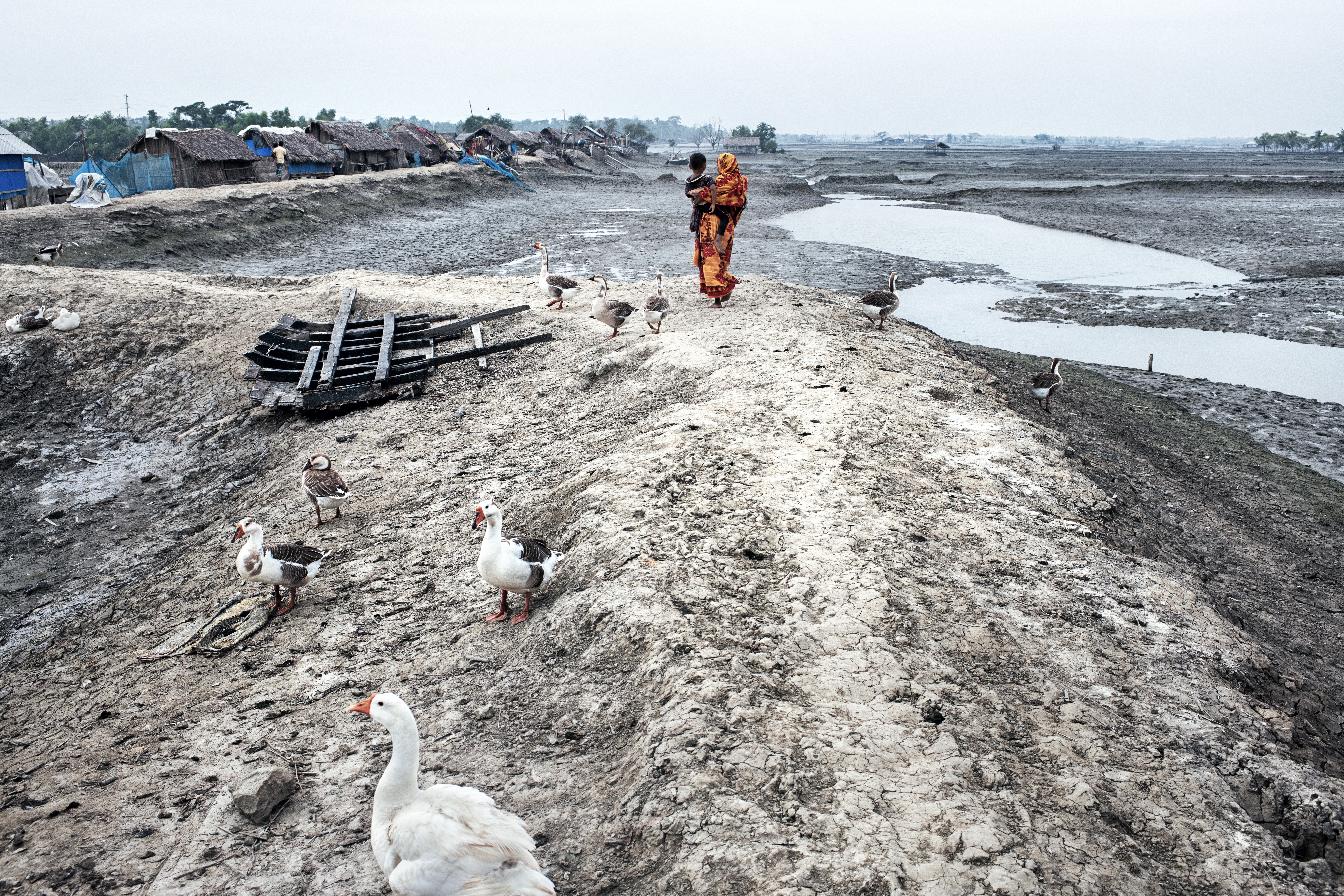By Anu Kumar, Ipas president and CEO, and Tanvi Monga, Ipas senior technical manager for community engagement
The news is inescapable. Climate change is not coming soon, it is here. Each day brings more evidence: massive wildfires, rising sea levels, toxic smog, scientists sounding the alarm that “the precious Amazon is teetering on the edge of functional destruction.”
Though many in positions of power still deny the reality of climate change, around the world there are activists, communities, and organizations big and small preparing to take on the staggering challenge of saving the planet. Just witness Greta Thunberg, the teenaged Swedish student who fearlessly stood before a group of world leaders at the UN and called out their inaction: “How dare you?”
But largely missing from the headlines so far is a critical point: Women and girls will be disproportionately affected by climate change—especially women and girls in the world’s poorest countries. Think about it. They don’t have as much money or mobility as men, they have more family responsibilities, they have little or no political power, and in many cultures, they do not have any say in family decisionmaking—including decisions about their own reproductive health and choices. This is a bad situation that will become even worse when women are caught in floods, droughts, cyclones and other climate disasters.
In many countries, for example, women and young girls are responsible for cultivating small farms, obtaining wood or coal, and gathering water. In a landscape altered by climate change, a longer walk to water or a new food source may increase a teenager’s vulnerability to rape and subsequent unwanted pregnancy; a crop failure due to drought may prevent a head of the household from being able to afford contraception or a safe abortion; a family facing severe hunger may sacrifice their young daughter for transactional sex or early forced marriage.
There is a growing body of evidence documenting exactly these kinds of scenarios. A recent Oxfam report says climate-fueled disasters are forcing an estimated 20 million people a year from their homes. For women and girls of reproductive age, displacement—the loss of their homes, their livelihoods and their normal social structure—very often means access to abortion and contraceptive services is disrupted or non-existent. Another study, by the International Union for Conservation of Nature, documents “extensive direct links” between environmental pressures and gender-based violence. It highlights case studies of sex trafficking, sexual abuse and sexual exploitation in areas where natural resources are becoming scarce due to climate change.
As the debate surrounding climate change accelerates, it is imperative that women’s voices be at the center of the conversation. So far, that has not been the case. National plans and strategies on mitigating the effects of climate change have tended to ignore the gendered aspects of programming—even though reproductive health programs that provide safe abortion care and contraception are a critical aspect of bolstering the resiliency of nations, communities and individuals to adapt effectively to climate change. But that isn’t stopping women’s groups and local feminist organizations from taking action to fight climate change. Often, they are at the forefront of activist movements, calling on governments to develop robust, responsive policy measures.
It’s also important to call out that the climate change conversation is too often dominated by the global North and has historically been tainted by racist and colonial discourse. The focus needs to be shifted. The voices of youth activists, women’s groups, reproductive justice advocates, and government champions across the global South must be heard. We must learn from the history of the environmental and women’s movements, and from global agreements that emerged from landmark UN conferences in Rio de Janeiro (Earth Summit), Vienna (World Conference on Human Rights), Cairo (whose Programme for Action defined reproductive rights and called for the provision of abortion where legal), and Beijing (where Hillary Clinton famously declared that human rights are women’s rights). One important lesson from this history is that many voices were heard and considered.
As leaders of an organization that is unapologetically focused on safe abortion and contraception, we also want to make one more thing crystal clear: In no way is coercing women and girls into using contraception or abortion part of the “answer” to mitigating climate change by reducing population growth. Climate change policy must be developed through the lens of reproductive justice and must empower women and girls as key players in climate change adaptation and mitigation. Plans and policies must always support women and girls in exercising their human rights and in making safe, voluntary, informed reproductive decisions with dignity.
Millions of women and girls around the world already face the huge pressures of gender inequality and violations of their human right to reproductive health care that includes safe abortion. Climate change is adding to that burden in dramatic ways. In the countries where Ipas works, we are already seeing climate change affecting the women and girls we serve—from increased flooding in Bangladesh to desertification in Nigeria to the recent cyclones in Mozambique. The challenge of protecting their reproductive rights and health is huge, but we are ready to do our part.
Dr. Anu Kumar is President and CEO of Ipas; Tanvi Monga is Ipas’s senior technical manager for community engagement.
Learn why we need women-led climate justice

Photo by Fabeha Monir

